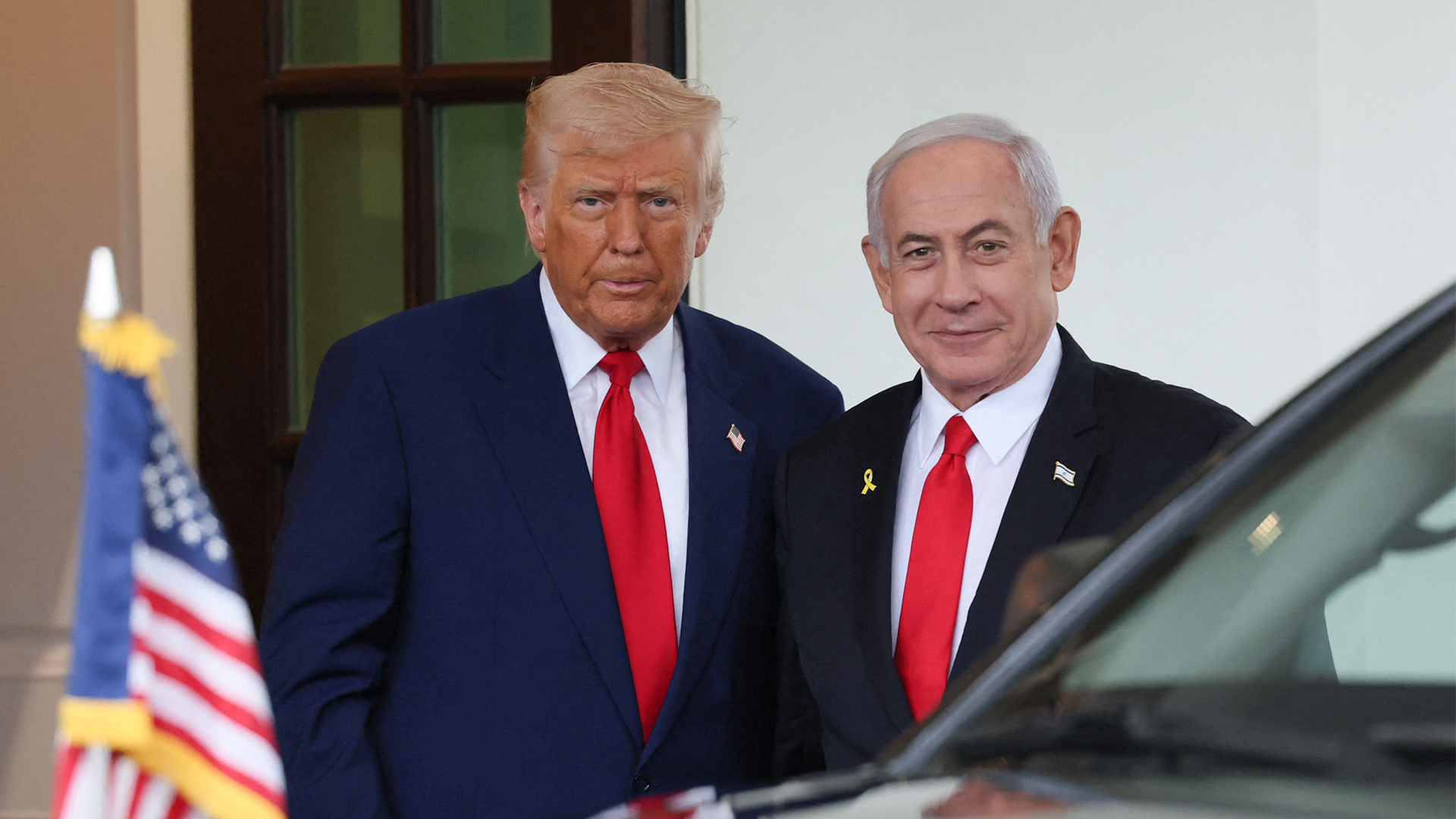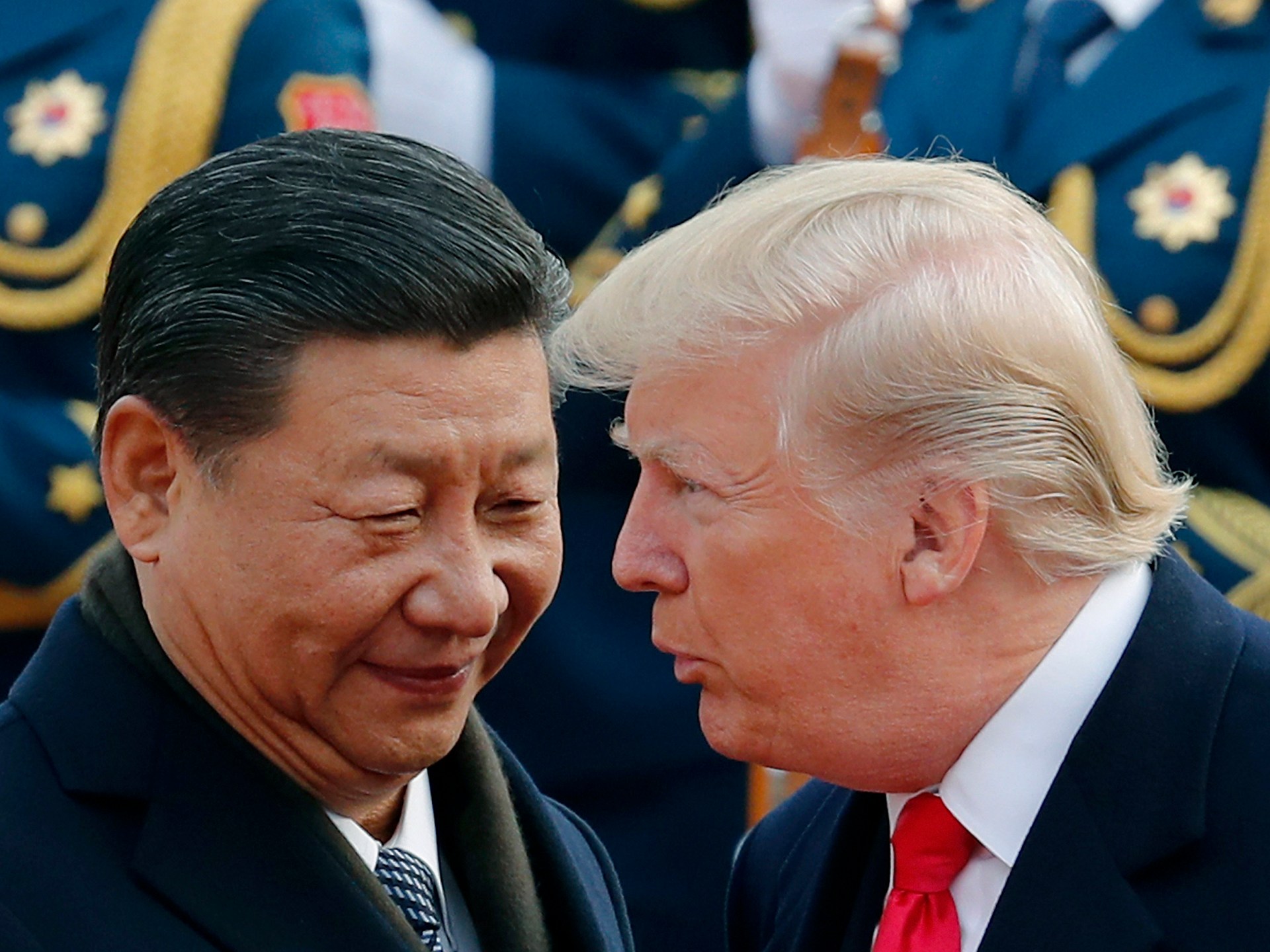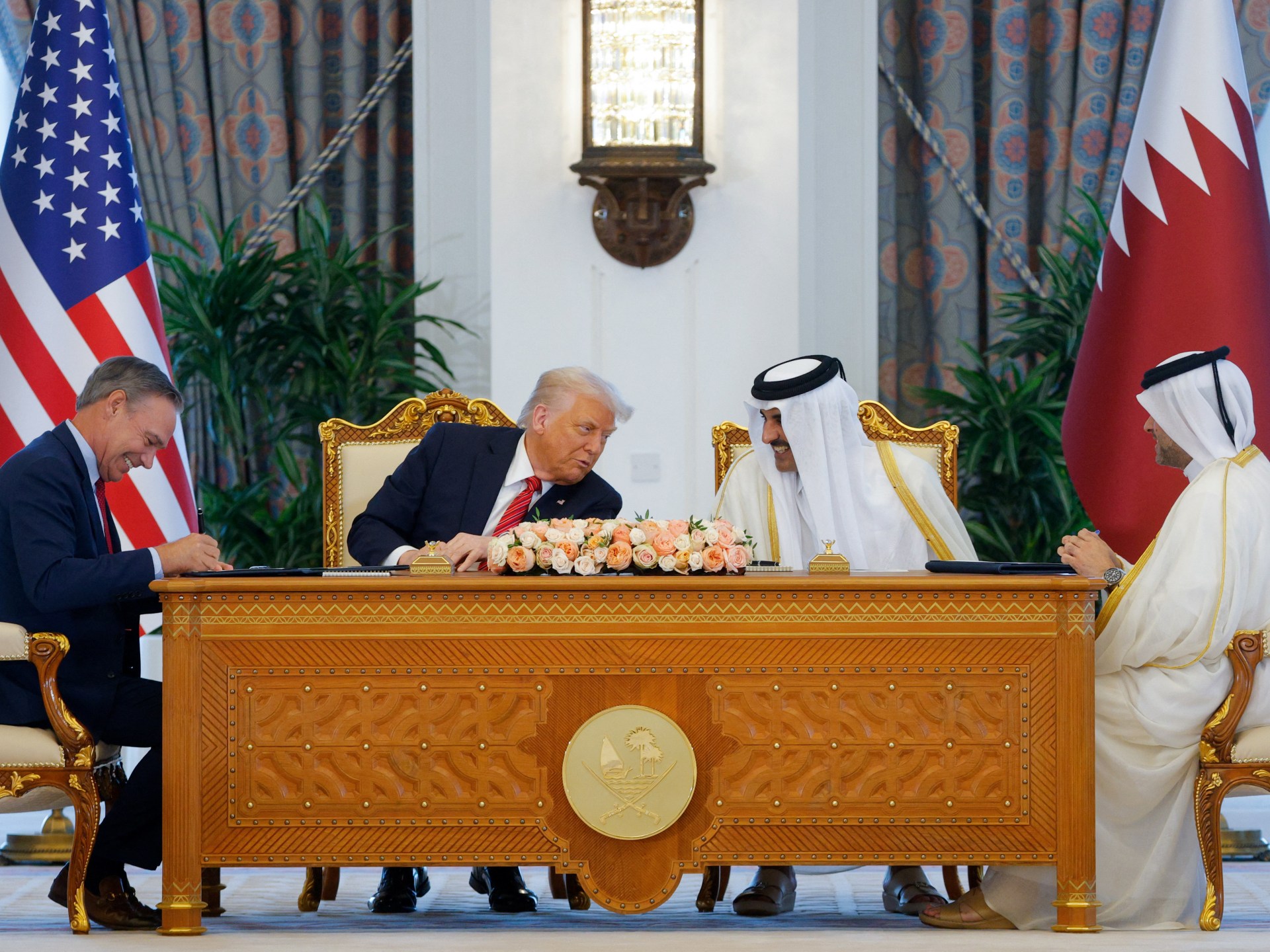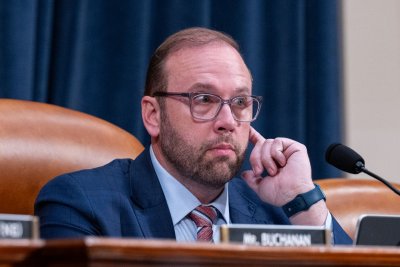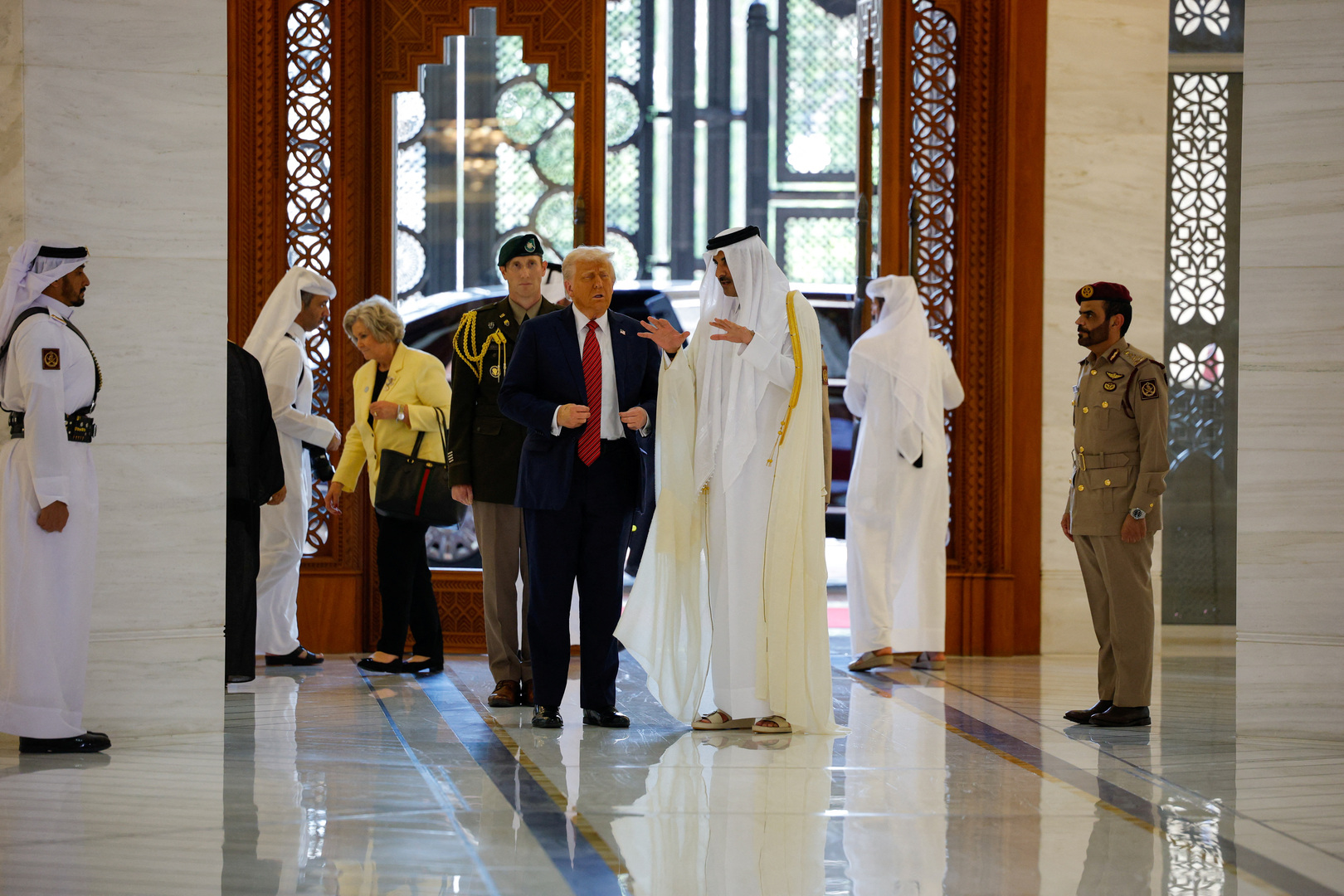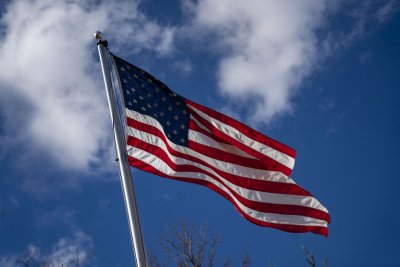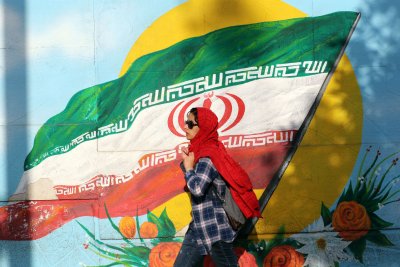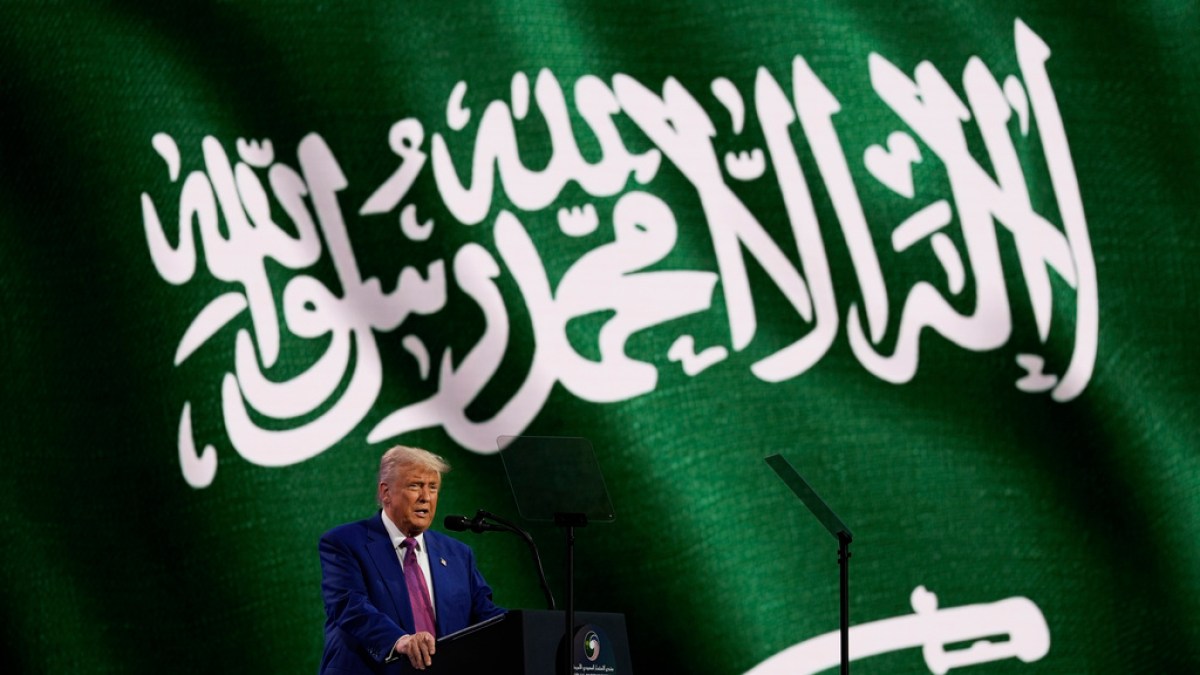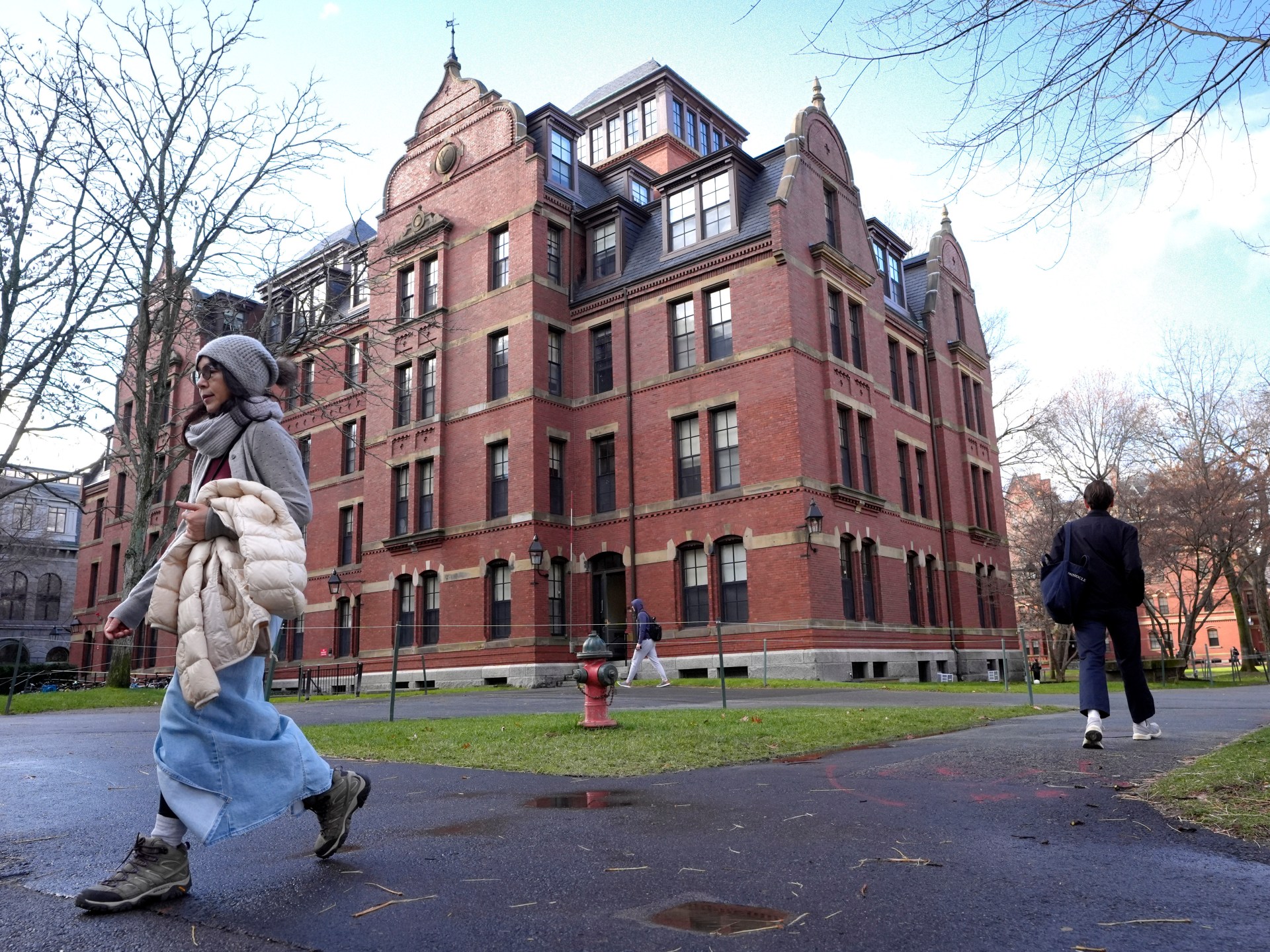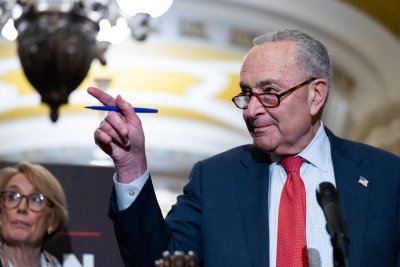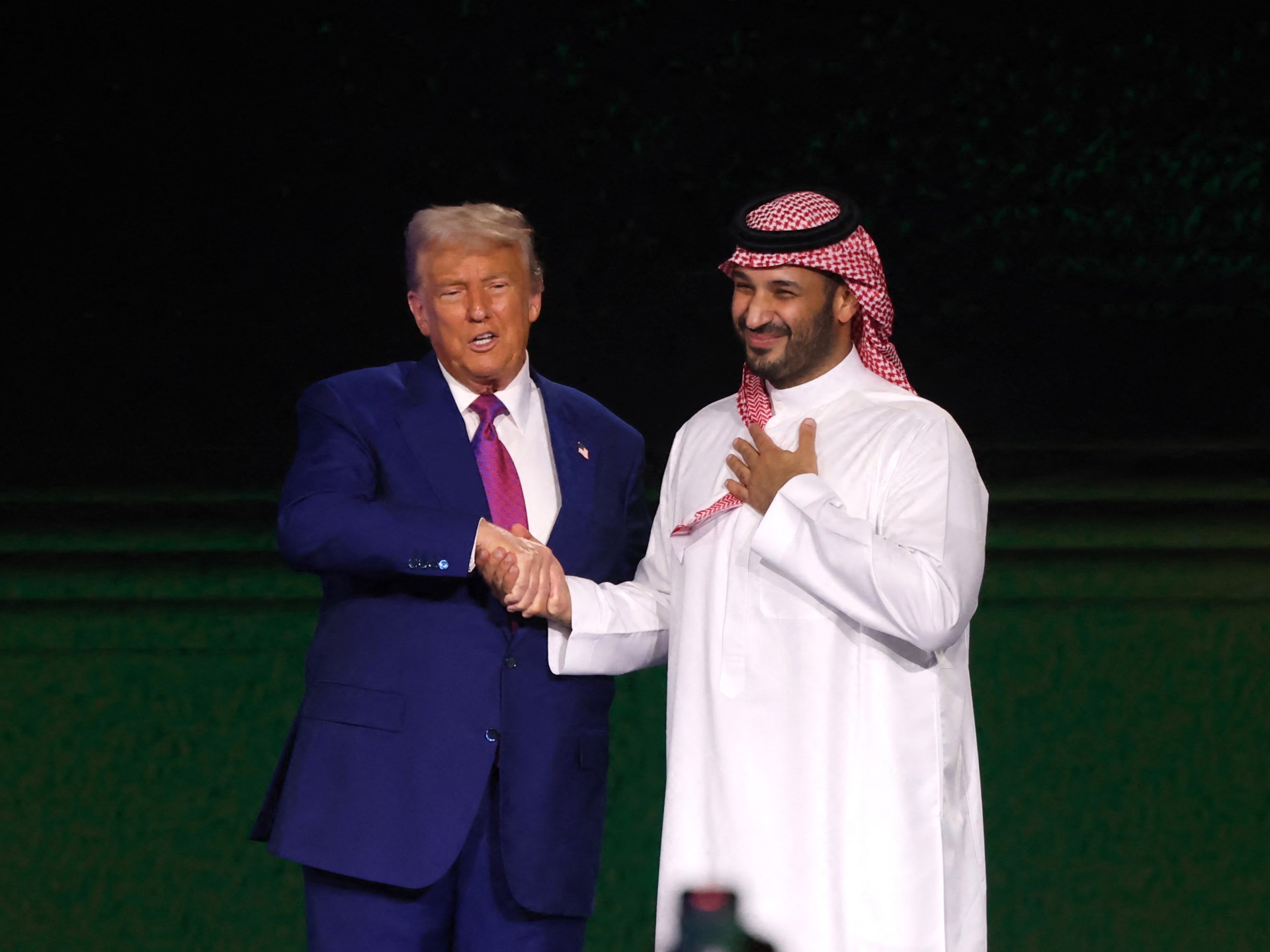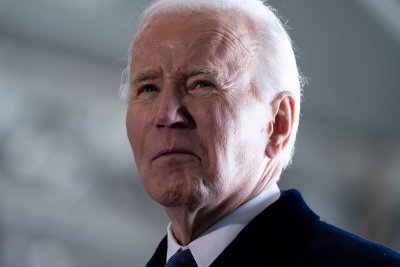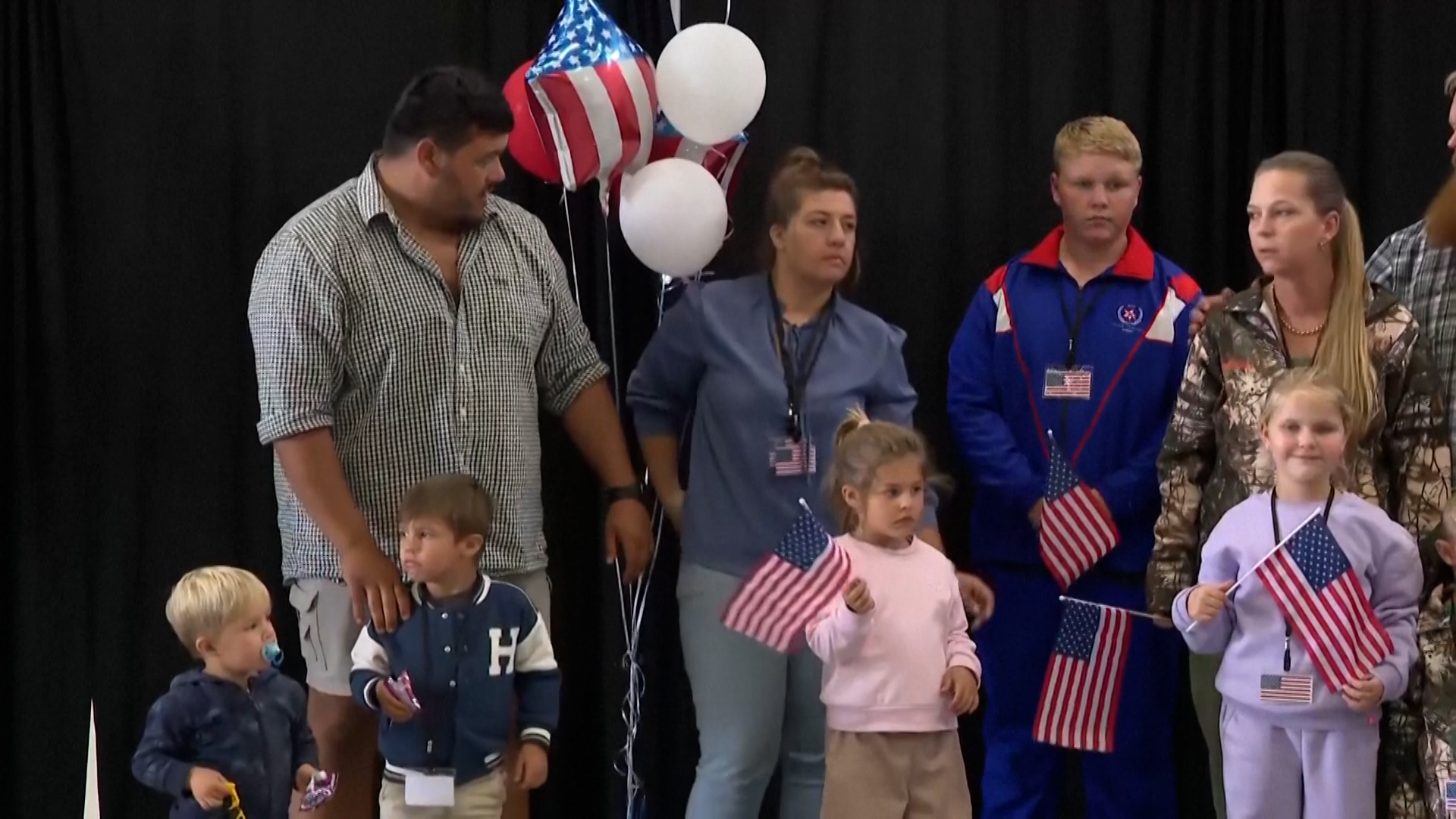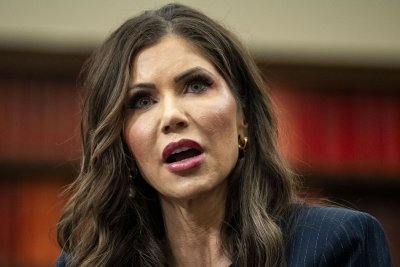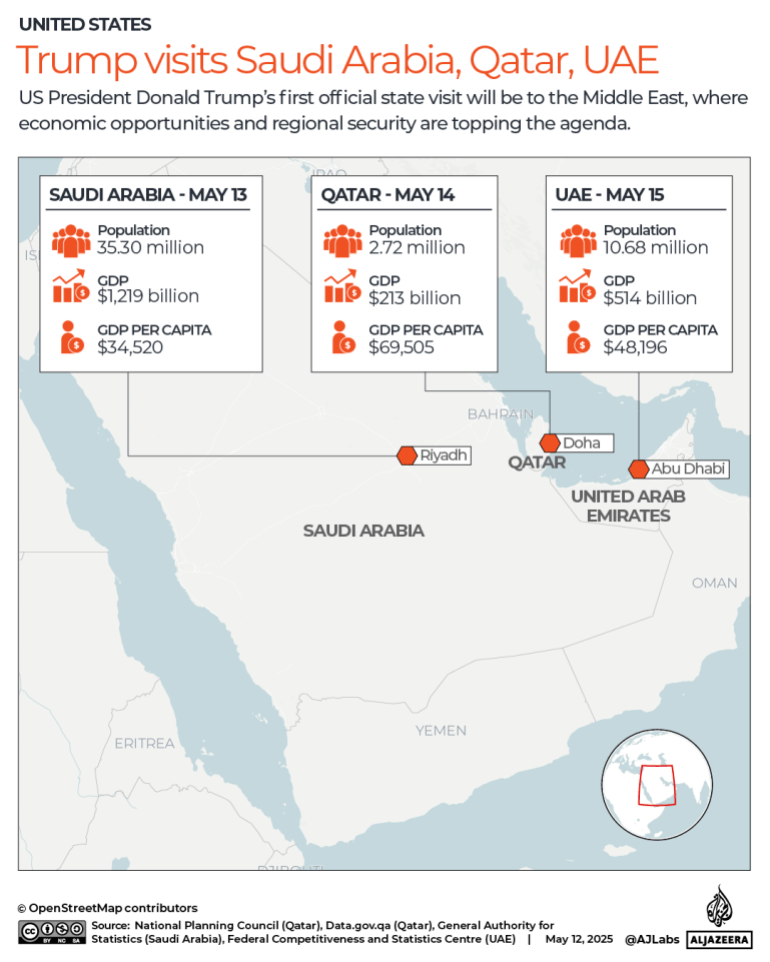Washington, DC – United States President Donald Trump says that forging formal relations between Saudi Arabia and Israel would be a “dream”, but he wants the kingdom to do it on its “own time”.
The White House on Tuesday made public a flurry of economic and defence pacts with Saudi Arabia involving hundreds of billions of dollars, but any mention of Israel was conspicuously absent from the announcements.
The so-called “normalisation” drive between Saudi Arabia and Israel dominated his predecessor, Joe Biden’s, approach to the region, but the current US president is shifting focus elsewhere, analysts say.
“The Trump administration has made it clear they are willing to move forward on key agreements with Saudi Arabia without the previous condition of Saudi-Israel normalisation,” said Anna Jacobs, a non-resident fellow at the Arab Gulf States Institute, a think tank.
“This probably reflects growing frustration in the Trump administration with Israeli military action across the region, especially in Gaza.”
‘Time is not right’
Kristian Coates Ulrichsen, fellow for the Middle East at the Baker Institute, also said that Trump has realised that with the ongoing war in Gaza and Israel’s refusal to negotiate the establishment of a Palestinian state, the “time is not right” for a Saudi Arabia-Israeli pact despite Biden’s emphasis on brokering a deal.
“I think the White House has finally acknowledged that a normalisation agreement at this time is not possible,” Coates Ulrichsen told Al Jazeera.
During his first term, Trump managed to broker the Abraham Accords between Israel and several Arab countries, including the United Arab Emirates, which established formal relations with the US ally independently of the Palestinian issue.
However, the agreements were unsuccessful in resolving the Israeli-Palestinian conflict, as evidenced by the outbreak of the war in Gaza in October 2023.
But even before the war started, Israel had been intensifying its military raids against Palestinians and expanding illegal settlements in the occupied West Bank, further dimming the prospects of a two-state solution to the conflict.
Despite the agreements’ apparent shortcomings, Biden made adding Saudi Arabia to the Abraham Accords a focal point of his Middle East agenda, and US officials said they worked on securing a deal up until the final days of the administration, even as the war on Gaza was raging.
Biden has repeatedly claimed, without evidence, that Hamas launched its October 7 attack against Israel in 2023 to thwart an agreement between the Saudis and Israelis.
Still, a day before he left office, Biden boasted that his Middle East policies created an opportunity for “the future of normalisation and integration of Israel with all its Arab neighbours, including Saudi Arabia”.
‘Off the table’
US officials and media reports said that Biden’s deal, which never materialised, would have brought a security pact between Riyadh and Washington and provided US help for Saudi Arabia to establish a civil nuclear programme in exchange for normalisation with Israel.
A major sticking point in that push has been the widely stated Saudi Arabian support for the 2002 Arab Peace Initiative, which conditions recognition of Israel on the establishment of a viable Palestinian state.
Israeli Prime Minister Benjamin Netanyahu has categorically rejected the “land for peace” framework, pushing instead for deals with Arab countries that bypass Palestinians.
“This Israeli government won’t even provide lip service to the idea of a two-state solution, making it pretty impossible for Saudi Arabia to seriously consider moving forward with normalisation,” said Jacobs from the Arab Gulf States Institute.
“The Trump administration seems to have understood that it’s off the table, at least for now.”
In Riyadh, Trump announced an agreement to deepen security cooperation with Saudi Arabia.
The $142bn deal will provide Saudi Arabia with “state-of-the-art warfighting equipment and services” from US firms, the White House said.
It also includes “extensive training and support to build the capacity of the Saudi armed forces, including enhancement of Saudi service academies and military medical services”, it added.
While the weapons and training deals fall short of a NATO-like mutual defence pact, which may have been included as part of an accord with Israel, they take a bite from the US-backed carrots offered to the kingdom for normalisation, experts say.
“The announcements today do further deepen the links between Saudi and US security and defence interests,” Coates Ulrichsen said.
US-Israel rift?
Trump’s visit to the region comes as Israel has promised to not just continue, but expand, its devastating war on Gaza, which has killed more than 52,900 Palestinians, according to health authorities.
Khaled Elgindy, a visiting scholar at Georgetown University, noted that Riyadh has described Israeli atrocities in Gaza as a “genocide”.
“The Saudis are not mincing their words; they are not holding back,” Elgindy told Al Jazeera. “They can’t now move toward normalisation with Israel after accusing Israel of genocide. That would just be ridiculous.”
After his trip to Saudi Arabia, Trump will head to Qatar and the United Arab Emirates as part of the first planned foreign trips of his presidency, since attending Pope Francis’s funeral last month. Israel is not on the itinerary.
For Coates Ulrichsen and others, Trump’s apparent snub of Israel reflects unease in the US-Israeli alliance.
“It may be a signal that the White House sees much more value in deepening commercial and strategic relationships with the Gulf states at the moment, given that Israel remains mired in conflict,” Coates Ulrichsen told Al Jazeera.
Israel excluded
Tensions between the Trump administration and Netanyahu’s government have become more apparent in recent weeks despite the US’s military and diplomatic backing of Israel.
Trump confirmed talks with Iran over its nuclear programme during Netanyahu’s visit to the White House, despite the Israeli leader’s opposition to negotiations with Tehran.
Last week, the US president also declared a ceasefire with the Houthis. The deal did not demand an end to the Yemeni group’s attacks against Israel.
As Trump spoke in Riyadh on Tuesday, the Houthis fired another missile at Israel – part of a campaign they say aims to pressure an end to the war on Gaza.
The Trump administration also worked with mediators in Qatar and Egypt to secure the release of US citizen Edan Alexander, who served in the Israeli military and was captured by Hamas during the October 7 attack on Israel. According to Israeli media reports, Israel was excluded from those talks.
Different visions
Elgindy from Georgetown University said the apparent tensions are more than a “bump in the road”, but their impact on the US-Israeli relationship remains to be seen.
“Trump is making clear in word and deed that US and Israeli interests are not one and the same,” he said. “And that’s very significant because Biden didn’t do that.”
For now, Trump remains committed to US military aid to Israel even as it intensifies its bombardment and starvation campaign in Gaza.
And the US president has pushed on with his crackdown on critics of Israel at home, especially on college campuses.
Still, experts say that by skipping Israel during his Middle East trip and de-prioritising normalisation, Trump is pushing forward in pursuit of his own vision for the region.
On Tuesday, Trump lauded Gulf leaders whom he said are building a Middle East “where people of different nations, religions and creeds are building cities together – not bombing each other out of existence”.
That future seems at odds with what Israel appears to be seeking: asserting hegemony over the region with long-term bombing campaigns, including in Gaza, Lebanon, Syria and Yemen.
“A very strong signal is being sent that a stable, prosperous Middle East – represented, in the administration’s views, by the Gulf states – is a much more desirable outcome than maybe the Israeli view of the Middle East at the moment, which is one of seemingly escalating a forever conflict,” said Coates Ulrichsen.



